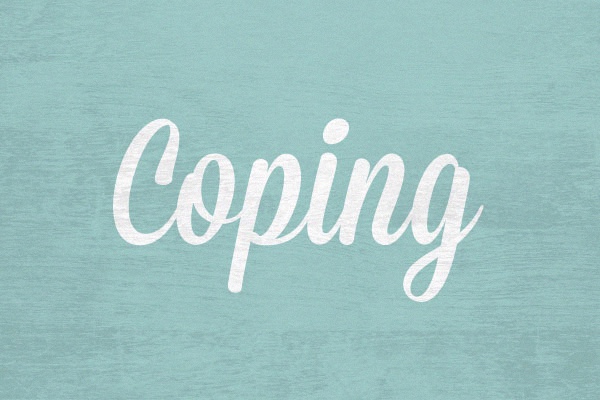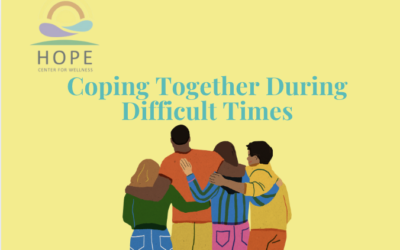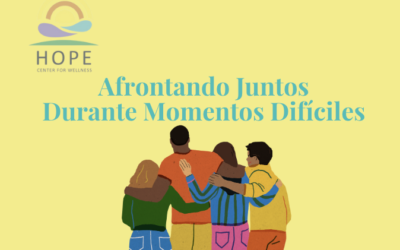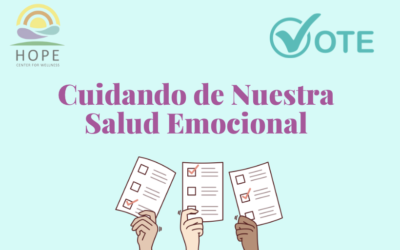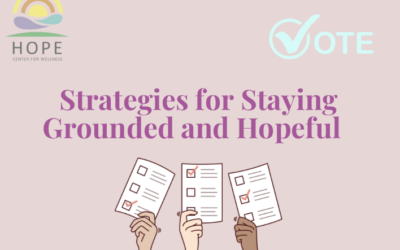It’s been over a month, but it may feel like an eternity, since Covid-19 was deemed a pandemic in the United States. Life as we knew it has been disrupted. It is probably safe to say that there isn’t a single person in the world that hasn’t been impacted by the pandemic in one way or another.
For the first time in history, we are experiencing a global shared pain, shared stress, shared grief and loss and shared trauma. While individually we may have experienced stress, fear anxiety, grief and loss, trauma depression, etc. before, as a community we had not gone through something like this together in such large-scale.
In the last month, all of us have experienced a loss–whether that is the loss of employment, health insurance, stability, the ability to see loved ones in person, doing things we normally would when and how we would have done it. And thousands have experienced painful and devastating life altering losses – losing family members and friends to Covid-19. No words can’t truly describe the pain associated with losing loved ones. Individually, as a community, as a nation and as a world, we are grieving and hurting.
As we continue to figure out how to make sense of what is happening around us, to adjust to a new way of doing things, to cope with our feelings and emotions and the uncertainty that the pandemic has brought, it is essential to know the psychological states being experienced so we normalize what is happening to us, our kids, and families, reduce our level of distress, validate ourselves and others, and decrease the stigma associated with “not handling emotions”, “how we are handling a situation”, or “feeling a certain way,” – all statements that we can think about ourselves or others when we feel we ought to respond a certain way. First thing first, let me tell you, there is nothing wrong with you for feeling a certain way. We are responding to an abnormal situation most of us are not prepared to deal with.
Grief and loss
You have probably heard about grief and loss. This process is often connected to death but it is also experienced when we lose something important to us or there is a perceived sense of loss.
Grief and loss is experienced in stages, which include:
- Denial (we can’t believe something is happening or has happened)
- Anger (we feel angry about what has happened)
- Bargaining (we experience a sense of wanting things to get better and often negotiate with ourselves, others or a higher being to make pain go away)
- Depression (feeling the sadness and pain more deeply) and
- Acceptance (we understand that what has occurred is happening).
These stages are not always experienced in this particular order nor on a particularly timeline. Some stages can last longer than others and some can be skipped. We can also experience anticipatory grief, which is grief experienced before a loss occurs. For instance, if we are thinking and worrying about dying or loved ones dying.
When people grieve, they may experience hopelessness, numbness, lack of energy (may sleep a lot or feel overly exhausted). Prolonged grief and loss related to the loss of loved ones may require professional help.
Experiencing triggers
Triggers are people, places, things, smells, sounds, situations, etc. that reminds us of something that has occurred in the past. For example, someone has experienced fear or trauma related to being in a life-death threatening situation could be triggered simply watching the news and learning about deaths due to Covid-19. Or someone who has been separated from a parent or parents and later reunited could get triggered watching other people lose their parents. This person may consciously or unconsciously fear another separation coming if their parents are no longer here.
Some of these fears are not on our consciousness but are manifested as behaviors, thoughts, and emotions, and it may impact decisions. For instance, a person fearful of losing parents may choose to go seem them even if it could be risky. To the rest of the world, this decision may not make sense. For the part of this individual that years connection and fears losing parents, a decision like ensures closeness to parents before being separated.
Fight, fight, freeze response
Additionally, the fight, flight, freeze response is activating over and over again. This is a response meant to protect us when we are in danger. We either fight or do something about the situation, we freeze or are immobilized about a situation and we flight which may be manifested as avoidance or running away from something.
Fear, anger, frustration
There are primary emotions being experienced by many during the pandemic, which are dictating many of the decisions we are making. People taking to the streets to demand reopening of their communities may consciously or unconsciously experience fear – fear of financial devastation, loss of their rights, etc. and fear of things outside of their control.
We have this information, what do we do now?
- Identify your response. Spend some time identifying which response you are seeing in yourself and those around us. When we name things, process them and accept them, there is more opportunity to shift how we may view ourselves for feeling, acting or behaving a certain way.
For instance, what I am experiencing is grief and loss. I am grieving the loss of my job. Notice how you feel as you name what you are experiencing. What emotion and sensation arises in your body. Name what you are experiencing. For example, I am feeling sad and scared for losing my job.
- Accept that you are experiencing a normal response to an abnormal situation. After you identify your response, normalize it by telling yourself that you didn’t provoke this response, than the situation itself prompts us to respond in a particular way. You can also tell yourself, while you didn’t create these emotions or reaction, you do have the control to manage how you feel or do something about how you feel.
- Noticing sameness. With so much change around us, things may feel out of control. Redirect your attention to the things that have stayed the same in your life.
For example, love of family and friends, the sun rising, the sun setting, my determination, my spirituality, etc.
- Bring yourself to the hear and now. The mind wanders and thinks about 70,000 thoughts per day, and most thoughts are repetitive. Imagine how much worry that may be if most of your thought are worry thoughts. Help your mind come to the present moment.
When you notice your mind staying in the past or focusing too much on the future, acknowledge that you are either in the past or future by saying: I am in future mode, I am in past mode and bring your attention to your breathing, take a few deep breaths until you can ground yourself back in the present moment. It may also be helpful to notice things around you, notice your feet grounded in the floor, or notice your body laying down.
When fear is a prominent emotion, you can bring yourself back to the present moment by reciting statements such as: I am afraid to lose my job, but at this very moment I am still employed or I am afraid to losing housing, at this very moment, I have housing. This will allow your nervous system to calm down, for the rational part of the brain to activate and for you to begin planning about what makes you nervous.
When I think about shared pain, I can’t help to also think about shared healing. This gives me hope. The sense of shared pain lets us know we are not alone and when we are not alone, we can think of our experience not as isolating but one that unites us.
These strategies should not replace seeing a mental health professional when you need it. If any symptoms you may experience persist for two consecutive weeks, seek help. To learn where to find support, click here.
Cheryl Aguilar is founding director and therapist at the Hope Center for Wellness.
How to Talk to Your Children About the Deportation or Possible Deportation of a Loved One
Due to the anti-immigrant political climate and mass deportation orders, countless immigrant families are facing the painful reality of having to tell their children or other family members that their mother, father, aunt, grandmother, grandfather, or another loved...
Cómo Hablar Con Sus Hijos Sobre la Deportación o Posible Deportación de un Ser Querido
En estos momentos, debido al ambiente político anti-inmigrante y a las órdenes de deportaciones masivas, un sinnúmero de familias inmigrantes está atravesando la dolorosa realidad de tener que decirles a sus hijos u otros familiares que su mamá, papá, tía, abuela,...
Estrategias para Lidiar con Estrés Electoral
A medida que las elecciones se desarrollan y los resultados comienzan a llegar, es natural sentirse ansioso o incierto sobre el futuro. Aquí hay algunas maneras de manejar el estrés y la ansiedad durante las elecciones mientras mantenemos la esperanza y la...
Coping with Election Stress
As the elections unfold and results start to come in, it’s natural to feel anxious or uncertain about the future. Here are some ways to manage election stress and anxiety while holding onto hope and possibility. Acknowledge Your Emotions: Take time to notice and...
Entendiendo la Depresión Estacional: Perspectivas y Estrategias de Autocuidado
Con menos luz solar durante el día en invierno, no es sorprendente que muchos de nosotros pasemos más tiempo en interiores en esta época del año. Menos luz solar puede afectar nuestro estado de ánimo porque la luz natural juega un papel crítico en la regulación del...
Understanding Seasonal Depression: Insights and Self-Care Strategies
With less sunlight during the day in the winter, it is no surprise that many of us spend more time indoors this time of year. Less sunlight can have an impact on our mood because natural light plays a critical role in regulating our body’s internal clock, also known...

